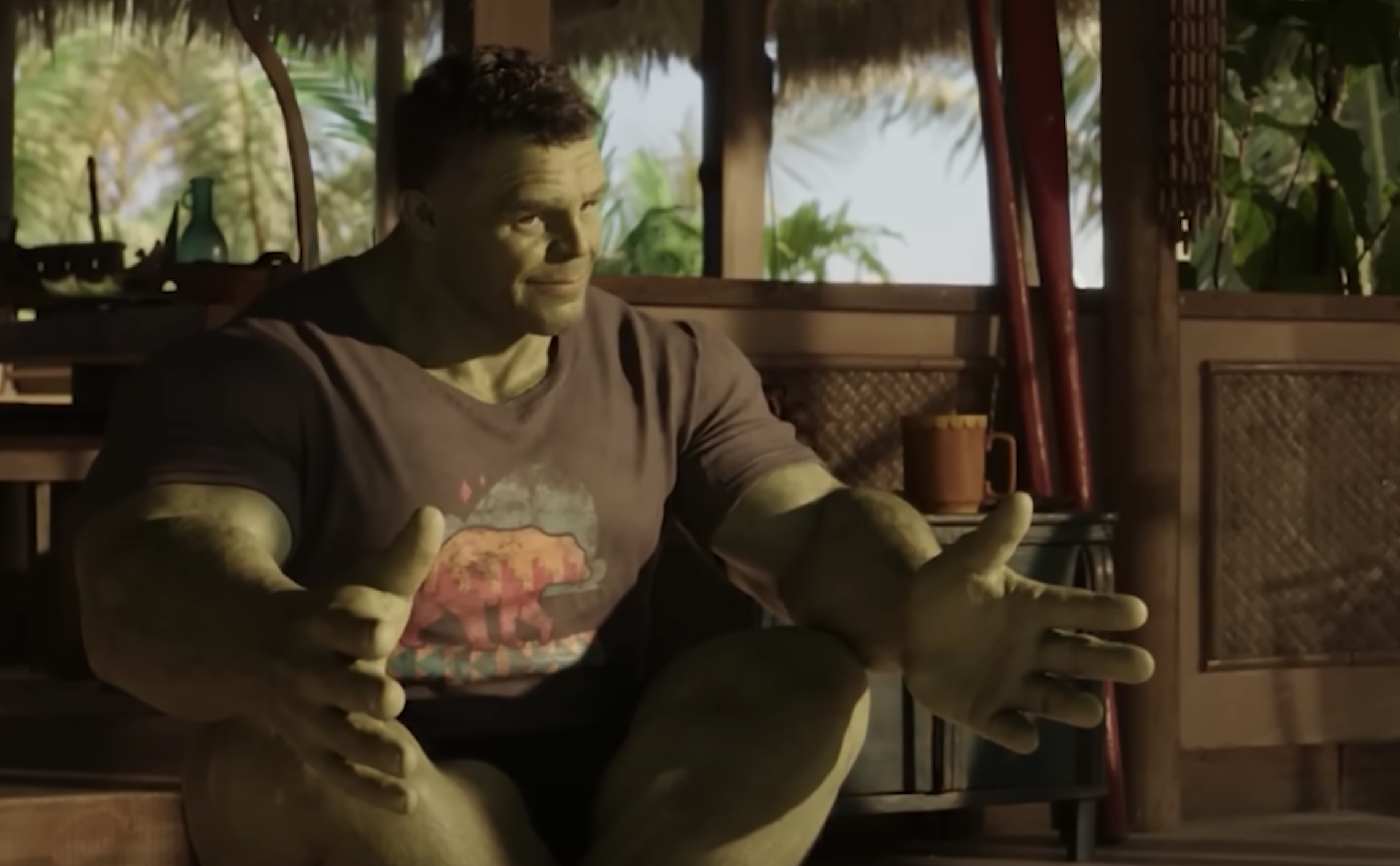
Native-Owned Fashion Featured in Marvel’s She-Hulk
[ad_1]

-
Details
-
By Neely Bardwell
-
In Marvel Studios’ new streaming TV show She-Hulk, actor Mark Ruffalo, who plays the Hulk, is featured in several scenes sporting T-shirts created by Native-owned company Ginew USA.
Ginew is North America’s first Native-owned denim company and is owned and operated by couple Amanda Bruegl (Oneida, Stockbridge-Munsee) and Erik Brodt (Ojibwe). In addition to running Ginew, both Bruegl and Brodt are full-time physicians.
Based in Portland, Ore., the company’s self-described “Native Americana” products are a fusion of Native American style with Ojibwe, Oneida and Stockbridge-Munsee design elements in heirloom-quality garments and goods from premium materials.
“We’re the only American Indian-owned denim brand that we know of, in the world,” Brodt explained in an interview with Native News Online. “We started kind of like a little bit of lightning in a bottle. My dad shot a buffalo for our wedding ceremony, and we didn’t want to give purchased gifts away, so we made buffalo belts for all the people that were in the wedding ceremony. We kind of became a brand overnight.”
The line has since been featured in Vogue, GQ, and now on She-Hulk. Brodt explains that Ruffalo advocated for the brand to be featured. The actor has proven to be a strong supporter of Native issues, showing up at Carlisle Indian School for a repatriation transfer event and joining the protests at Standing Rock in 2016.
“Mark Ruffalo had reached out to us ahead of time and connected us with people on his staff or team to get some designs of T-shirts, and they really kind of took it from there,” Brodt said. “I think it was his advocacy that got us included in The Hulk’s wardrobe.
Every piece of Ginew clothing is ethically made. Brodt described being at the Pendleton Woolen Mill factory when a Ginew blanket was being produced.
“Hearing the people at the factory gets so excited about our designs, and even people that see every single blanket that Pendleton makes and they’re like, ‘We are so happy to be working on this one because it’s different, there’s something that’s different about this one,’” Brodt expressed. “There’s Native people there. There’s first-generation immigrants there. There’s folks who’ve been three or four or five generations working together as families there, and to have them get excited about our product is so cool.”
Last month, Ginew secured a $500K investment from Raven Indigenous Capital Partners.
More Stories Like This
Q&A: Diné Poet Esther Belin
Santa Fe Indian Market Celebrates 100 Years of Native American Fine Art
After a Successful Championship, Hoop Dancers Performed at the Santa Fe Indian Market
Reservation Dogs Season Two Premieres Tonight
Do you appreciate a Native perspective on the news?
For the past decade-plus, we’ve covered the important Indigenous stories that are often overlooked by other media. From the protests at Standing Rock and the toppling of colonizer statues during the racial equity protests, to the ongoing epidemic of Murdered and Missing Indigenous Women (MMIW) and the past-due reckoning related to assimilation, cultural genocide and Indian Boarding Schools, we have been there to provide a Native perspective and elevate Native voices.
Our news is free for everyone to read, but it is not free to produce. That’s why we’re asking you to make a donation this month to help support our efforts. Any contribution — big or small — helps us remain a force for change in Indian Country and continue telling the stories that are so often ignored, erased or overlooked. Most often, our donors make a one-time gift of $20 or more, while many choose to make a recurring monthly donation of $5 or $10. Whatever you can do, it helps fund our Indigenous-led newsroom and our ability to cover Native news.
Donate to Native News Online today and support independent Indigenous journalism. Thank you.
[ad_2]
Source link



